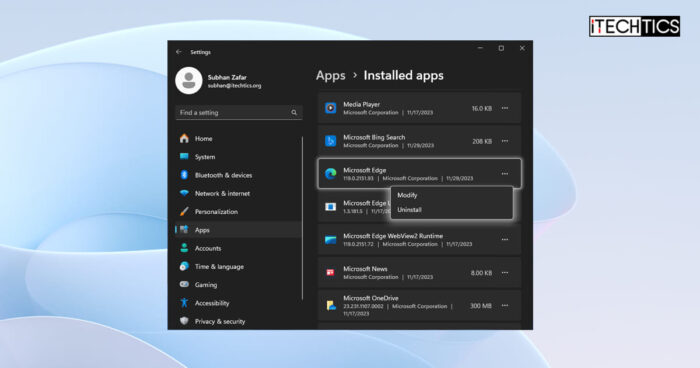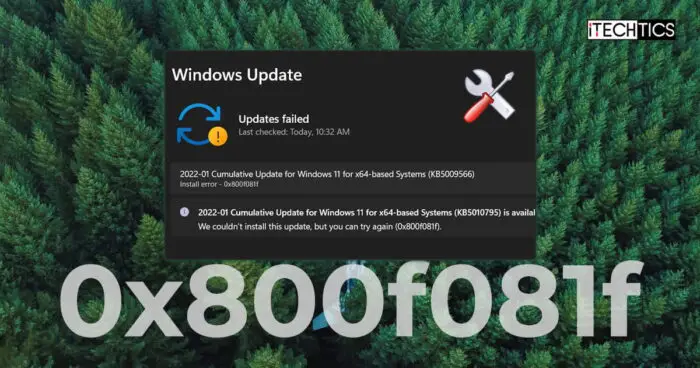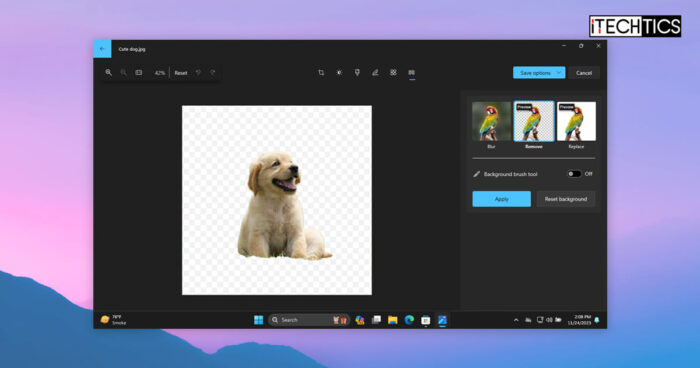When Windows 11 was first launched in 2021, Microsoft completely revamped the taskbar. Instead of a left-aligned taskbar, the icons were now center-aligned by default. Moreover, some new icons were also added, which included the Search icon, Task view icon, Chats icon, and the Widgets icon.
Although these icons provided quick access to certain Windows functionality, many users had no use for them, while some found the taskbar very clustered.
Thankfully, the Windows operating system gives users the option to hide these icons, and show them when needed. You can hide or show these icons from the Settings app or through the Windows Registry.
We suggest that you opt for the latter when you are unable to get the job done through the Settings app.
Remove Widgets, Chat, Task View, Search Icons from Settings App

Here is a quick guide to unpin the Search, Chat, Task view, and widgets icons from the Windows 11 taskbar:
-
Navigate to the following:
Settings app >> Personalization >> Taskbar
-
Here, the Taskbar items should already be expanded. If not, click on it to expand the sub-menu.
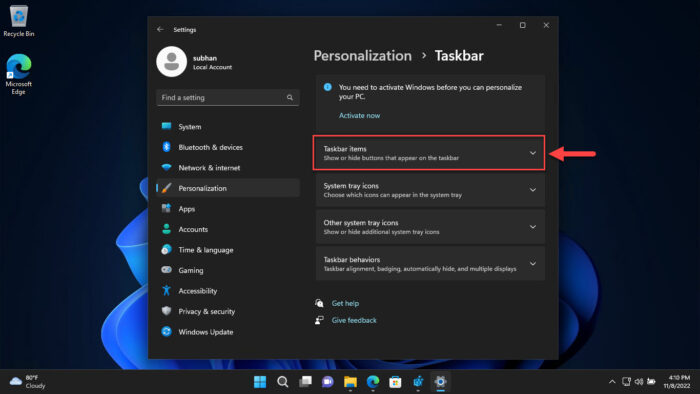
Expand taskbar items menu -
In the sub-menu, toggle the sliders in front of the following options into the Off position to remove them from the taskbar:
- Search
- Task view
- Widgets
- Chat

Remove Search, Task view, Widget,s Chat from taskbar
Turning all the options off will remove the respective icons from the taskbar. However, if you want, you can keep the one(s) you use or need while removing the others, by toggling the respective slider(s) into the On position.
Remove Widgets, Chat, Task View, Search Icons from Windows Registry
If the method above did not work for you, then you can also hide the search, task view, chat, and widgets icons in the taskbar from Windows Registry. Here is how:
Note: Misconfiguration of critical values in the system’s registry could be fatal for your operating system. Therefore, we insist that you create a system restore point before proceeding forward with the process.
-
Open the Windows Registry editor by typing in regedit in the Run Command box.
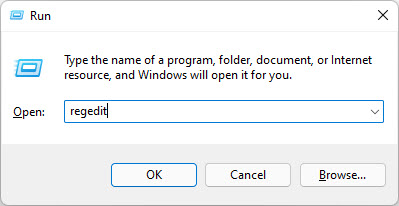
Open Registry editor -
Now paste the following in the navigation bar at the top for quick navigation:
Computer\HKEY_CURRENT_USER\Software\Microsoft\Windows\CurrentVersion\Explorer\Advanced

Enter path for quick navigation -
Here, double-click on the following Registry values and change their Value Data to 0 to hide the respective icon:
Value Respective Icon SearchboxTaskbarMode Search icon ShowTaskViewButton Task view icon TaskbarDa Widgets icon TaskbarMn Chat icon Taskbar icons and their respective Registry value 
Change Value Data A computer restart will not be required.
If you do not find any registry value listed above, you can simply create it by right-clicking on the Advanced key, then expanding, New from the context menu, and then clicking DWORD (32-bit) Value.

If you wish to restore any of the icons, all you need to do is change the Value Data of its respective Registry value to 1. Alternatively, you can also enable it from the Settings app as discussed in the last section above.
Uses of Chat, Widgets, Task View, Search Icons
If you are new to Windows 11, here is a brief introduction to each of the 4 taskbar icons before you make up your mind about whether to show it or hide it from the taskbar.
The Widgets icon in the taskbar opens a widgets flyout that displays useful information around you, such as the local news headlines, the weather, and other information.

The search icon opens a flyout similar to the taskbar, using which you can search both locally and on the internet for any file, folder, or other data.

The Task view icon lets you manage your open apps, programs, and windows, and can also be used to create and manage virtual desktops.
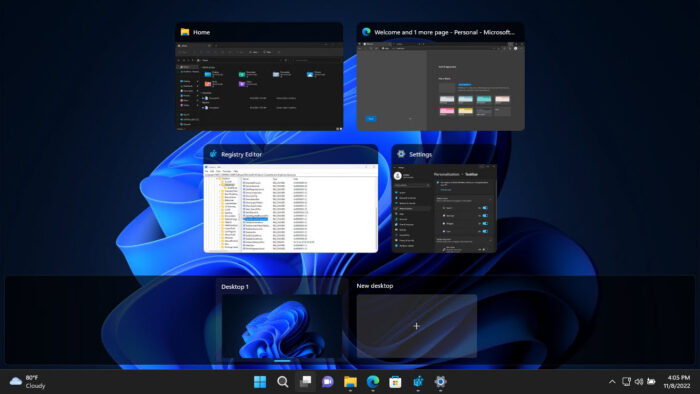
The Chat icon opens a flyout using which you can sign into your Microsoft Teams account. This is a quick method to get in touch added to your Teams account.

Closing Words
The Windows 11 OS was a major overhaul of Windows 10. Even though Microsoft added and removed certain features, much of the control of those features have been given to the user themselves, so they can adjust it according to their taste and preferences.
Which is why the taskbar is customizable. You can even hide the taskbar or configure auto-hide.

